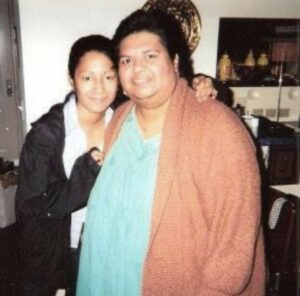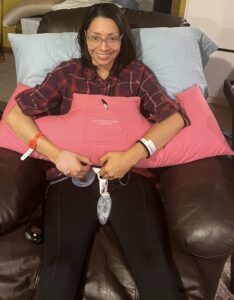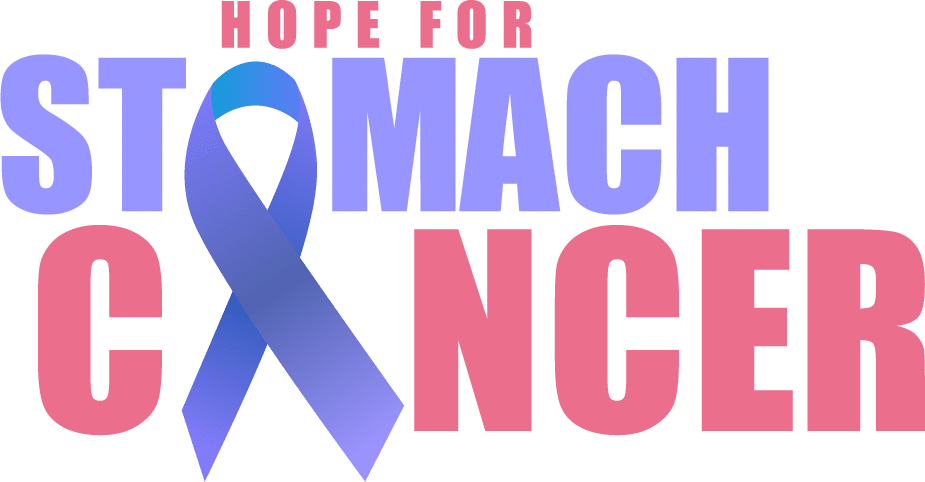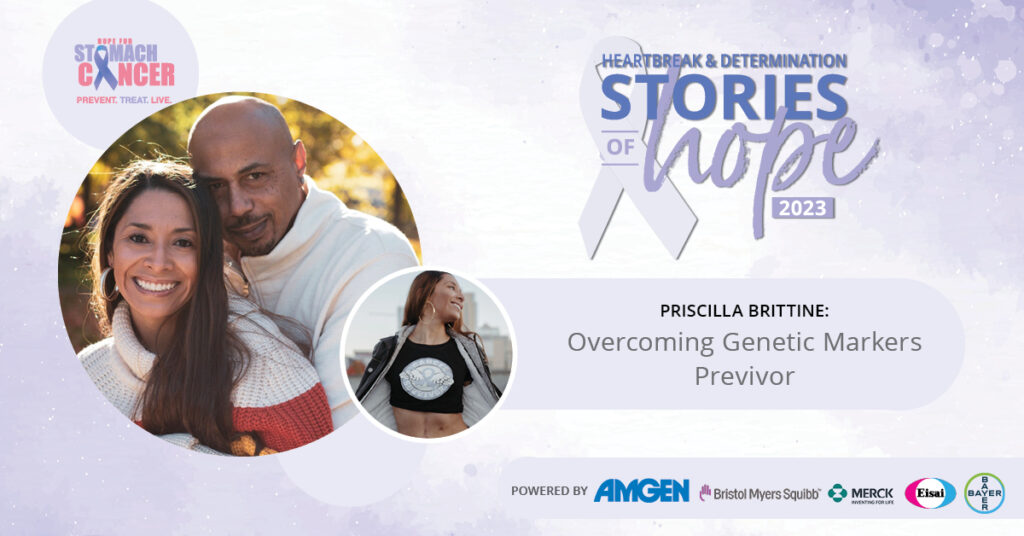Priscilla Brittine from Kansas made the brave decision to undergo a total gastrectomy and a double mastectomy. As an individual with a CDH1 gene mutation, she faced an increased risk of several cancers, including stomach and breast cancer. This is her story of hope.
At the age of 14, I watched my mom suffer from stomach cancer. She had an aggressive type that caused her to pass away in her early 40s. She was gone less than a year after getting her diagnosis – and much too soon. Leading up to that time, she was misdiagnosed, put off, and not taken seriously. Thankfully, we learned one thing from her experience: my mom had a CDH1 gene mutation, a trait that can impact multiple people in the same family.
 Our Family History with the CDH1 Gene Mutation
Our Family History with the CDH1 Gene Mutation
Having a CDH1 gene mutation greatly increases your risk of having stomach, breast, colorectal, thyroid, or ovarian cancer. In particular, it causes an aggressive form of stomach cancer called hereditary diffuse gastric cancer. In women, there is a high risk of developing lobular breast cancer, as well. People with a family history of stomach cancer have a lifetime risk rate of 70 percent for developing stomach cancer, and women with the CDH1 gene mutation have a 56 percent risk of getting lobular breast cancer.
We saw the effects of the CDH1 gene mutation at work in my family: my mom had cancer, as did her brother (my uncle). At least nine of my cousins have passed away from cancer, and I have four cousins who are living without stomachs since they all opted to have gastrectomies.
Choosing to Safeguard My Future
Knowing my family history, I had some big decisions to make. I noticed I had some unusual nodes around the time that I got my COVID shots. I was in my early 30s at the time, but since cancer can strike at any age, I’d been monitoring my body closely with scans, mammograms, and regular checkups. Truthfully, it was tiring to live with uncertainty about my future.
I learned that my insurance would cover prophylactic (preventative) surgery in my case due to the gene mutation. Diagnostic testing didn’t show anything concerning, and I didn’t have any symptoms. However, I elected to have a total gastrectomy in 2019, just to be safe. The surgery went well, and as I was recovering in the hospital, I heard some shocking news: the surgeon had seen early signs of gastric cancer when removing my stomach. They told me I’d had my surgery in the nick of time.
A Rough Road to Recovery
The total gastrectomy was one of the hardest experiences I’ve had to endure. I spent a week in the hospital, but my recovery stretched on for months. At home, I had to live with a feeding tube for weeks. I had constant nausea for nearly a year and spent much of my time bed-bound. I had to do physical therapy and found myself in and out of the hospital often. I kept getting thinner and thinner. Further, I’ve had 7 or 8 esophageal dilations. These in-office procedures help stretch the esophagus so that food goes down smoothly.
Eventually, I hit a turning point where my condition improved a bit. The nausea and vomiting subsided, and I began to put on a bit of weight. I was grateful for the changes, but I had another big decision to make: I had to think about the future risk of breast cancer.
 Deciding to Have a Double Mastectomy
Deciding to Have a Double Mastectomy
I recently decided to have both of my breasts removed to prevent breast cancer in the future. This was a tough surgery as well, and as of October 2023, I’m in the early stages of recovery. It’s difficult to remove parts of your body when you aren’t sure about the future risks – but I quickly learned that I’d made the right choice after my gastrectomy. Further, I am committed to being here for my children. I don’t want them to live without a mother like I did as a teenager.
In the future, I’ll have reconstructive breast surgery. That is the last major procedure I have planned that’s related to my CDH1 gene mutation.
By sharing my story, I hope that I can give others strength and courage – especially those who are struggling with uncertainty because of their genetics. This specific genetic mutation was discovered that year of 2001 (the same year my mom died) in New Zealand. My mom was one of the first, but because of the lack of research back then, she didn’t have the chance that we had. Basically, it had to take more lives until the door opened for my family with this mutation years later when several of my 2nd generational cousins lost their lives as well. The doctors started questioning what was happening, and that is when we learned the CDH1 mutation in our family. The ones before me who lost their lives paved the way to making this discovery.
This year, I was able to successfully request that the Governor of Kansas give a proclamation to the state regarding CDH1 and stomach cancer risks. That was a major win for me, and I hope others will benefit!

